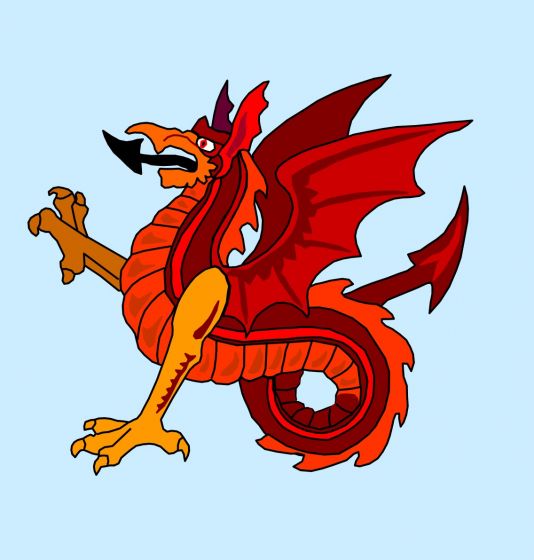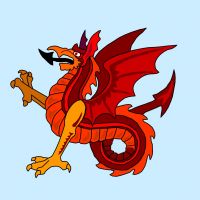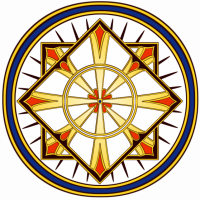
Wyvern
Wyvern
About
- Username
- Wyvern
- Joined
- Visits
- 3,239
- Last Active
- Roles
- Member
- Points
- 5,519
- Rank
- Cartographer
- Badges
- 24
-
Looking for Symbols
I remembered this because I used it a long while back (shown in the first post in that link) to make versions of Nibirum for the Community Atlas!
-
Live Mapping: Latest Monthly Symbols
Just caught-up with the livestream VOD, and while obviously disappointed that Ralf didn't go with the peppermint volcano options (or early varicolor test if you prefer), it is a fun drawing!
Slightly weird that the VOD continued on through what was a break in transmission for the live viewers, but that's what happens when you're broadcasting from a strobing disco, as Ralf was 😉. Hopefully, whatever was causing that effect can be resolved before next time, as it was a little distracting at times.
I could have done with these hive symbols 2½ years ago, when I was preparing my giant ant nest map for the Community Atlas (Queen Mica's Scintillant Palace - Forum topic and Atlas link)!
-
Annual 2025?
-
Birdseye Continental - style development thread
-
Project for a friends world.
-
Community Atlas: Aenos Isle North, Demosthenes Swamp, Artemisia
Thanks very much folks!
@Royal Scribe: Since the map needed both a substantial overland area as well as underground features, and I really wanted to work in colour again after a long spell of black-and-white mapping, Sue's collection of "Dark & Creepy Forest Lands" just seemed the perfect fit. I've played around with a number of cliff-mapping options before too, and this meant I could finally try out this option for the first time as well. Redrawing the cliff shadows was a bit trickier, because I wasn't holding with the default option, but hopefully the archway shadows over the four entrances to the underground areas don't look to bad (to my eye anyway!).
@Don Anderson Jr.: Yeah, I spent a while tinkering with those pillar shadows. Ordinarily, all the underground features come with such wall shadows as standard (if of varying length, and sometimes strength), but like you, I'm not keen to have them for most things in such circumstances, especially in this case, where there are overground shadows too. Usually - as here - I change them to glows so the light seems to be, very loosely, coming from overhead.
However, the ceiling in the Great Temple is quite high (30 ft, 9 m, with a gentle barrel-vaulting; most other places are only one-third that in the subterranean sections), and the pillars reach right up to it (as will be explained in the notes for the map with the Atlas version), so I wanted to try to hint-at something of that here. Of course, in the circumstances the Great Temple walls ought to have similar shadows, but that starts to look even messier. I played around with glows for a while, but that didn't looked right (the things stopped looking like pillars at all in most cases), so this was the "least worst" option, with watered-down wall shadows.
Ultimately, I felt they added the right note at hinting towards the central importance and size of this main chamber, so held with that.
-
Can't Export this to JPEG
I've found CC3+ will crash (shuts down) without telling you why if you've set the export to a size your system (or the combined your + CC3+ system) can't handle. Occasionally, you might get an error box telling you something similar before this happens, but not always. Typically, I find setting the antialiasing to zero, or just turning it off, will solve the problem. However, it may be there's something else at work in this case too, of course.
-
Can't Export this to JPEG
-
Can't Export this to JPEG
It's just a thought, but at this large-scale of map, you can use the straight drawing tool and get a nearly identical "natural" appearance, simply by clicking more nodes as you go along. Although this obviously creates more nodes, they'll end up as a mere fraction of what you'd get by always drawing using the fractal tools, which often add far too many nodes on their default settings. You'll also end up with a map that looks pretty well identical to this, but one that you'll have more control over in all manner of ways.
-
Anyone have the Llankmarh fcw?
After some protracted hunting online, the best I can find are some CC2 versions of just the geomorphs on this very old website. I can't seem to find this map in CC2, although it's almost certainly based on the old TSR module "Lankhmar City of Adventure", which came with non-CC2 versions of both this map (in more usable detail) and a separate booklet with just the geomorphs. I also stumbled upon a set of PNGs for the geomorphs (only - again...) on Box here. The first site just has GIFs as well as the CC2 options, but the PNGs may be more useful if you wanted to convert them to symbols.
Otherwise, yours may be the only surviving FCW version of the whole city map available online!




